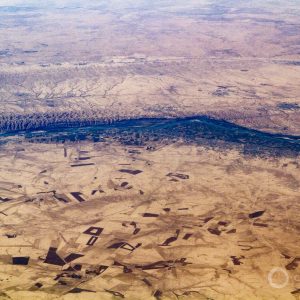Federal Water Tap, January 7: Trump Administration Asks Supreme Court to Review Groundwater Case
The Rundown
The Justice Department wants the high court to review two cases that address whether the Clean Water Act extends to groundwater that connects to rivers, lakes, and oceans. The new House Speaker announces a climate change committee. The Trump administration is slow to release $16 billion in hazard preparation funds. The Department of Energy discusses a $100 million desalination research center. And lastly, an update on American West snowpack.
“The American people understand the urgency. The people are ahead of the Congress. The Congress must join them. And that is why we have created a select committee on the climate crisis. The entire Congress must work to put an end to the inaction and denial of science that threaten the planet and the future.” — Rep. Nancy Pelosi (D-CA) in her remarks to the opening session of the 116th Congress. Pelosi, elected speaker of the House, called climate change “the existential threat of our time.”
By the Numbers
$16 billion: Hazard preparation funds authorized by Congress last year that the Trump administration has not yet distributed. Endorsing the principle that communities should be proactive when dealing with the risks from powerful floods and hurricanes, Congress ordered that the funds be used to buttress towns and businesses against rising waters. The bulk of the funds are designated for Puerto Rico and Texas, pummeled by hurricanes Maria and Harvey in 2017. (BusinessWeek)
News Briefs
Groundwater Bubbles Up at the Supreme Court
In a brief filed on January 3, Justice Department lawyers urged the U.S. Supreme Court to add to its workload a legal question with significant environmental and regulatory consequences.
The question at hand: does the pollution of groundwater that then flows into rivers, lakes, or oceans require a Clean Water Act permit? Appeals courts are divided on the issue.
“That conflict warrants resolution by this Court,” the Justice Department argues.
“The question presented here,” the federal government’s lawyers added, “has the potential to affect federal, state, and tribal regulatory efforts in innumerable circumstances nationwide. The implications for regulated parties are also significant, including because CWA violators may face serious civil penalties and, in certain cases, criminal punishment.”
One case that the Supreme Court is considering involves the injection of treated wastewater on the island of Maui into wells. Water injected in the wells flows to the Pacific Ocean.
The other stems from a gasoline spill in South Carolina from a pipeline owned by a subsidiary of the infrastructure company Kinder Morgan. Gasoline seeped into groundwater and then into nearby creeks and wetlands.
The legal conflict in these cases and in other appeals court rulings is borne from disputes about the language of the Clean Water Act and how judges have interpreted it: whether there is a direct connection between the pollution source and the regulated surface water body.
The Justice Department asserts that the Maui case is the more appropriate vehicle to render judgement on the issue because the case is more straightforward.
In context: Lawsuits in Three States Target Groundwater Pollution under the Clean Water Act
Select Committee on the Climate Crisis
In their first week in power, House Democrats moved quickly to bring climate change to the forefront.
The Select Committee on the Climate Crisis, however, has limited power. It will be able to hold hearings and submit recommendations. But it will have neither subpoena power nor the ability to write legislation.
The committee will be comprised of nine Democrats and six Republicans, and the chair is Rep. Kathy Castor of Florida.
See page 46 for the committee rules.
Studies and Reports
2019 Snowpack Update
Most monitoring stations in the American West indicate that snow levels are near the 30-year average, according to Natural Resources Conservation Service data.
Exceptions include the Oregon Cascades, southwest Colorado, and central Arizona, where snow levels are significantly below normal for this time of year. California officials, after the state’s first official snow survey of the year, described snow accumulation in the Sierra Nevada as “just adequate, at best.”
Basins have two to three months to accumulate snow before the spring melt begins.
On the Radar
Department of Energy Desalination Research
The Department of Energy is offering $100 million to establish a desalination research center. The department is holding a webinar today, January 7, at 3:00 p.m. Eastern to discuss the application process. Register here.
Federal Water Tap is a weekly digest spotting trends in U.S. government water policy. To get more water news, follow Circle of Blue on Twitter and sign up for our newsletter.
Brett writes about agriculture, energy, infrastructure, and the politics and economics of water in the United States. He also writes the Federal Water Tap, Circle of Blue’s weekly digest of U.S. government water news. He is the winner of two Society of Environmental Journalists reporting awards, one of the top honors in American environmental journalism: first place for explanatory reporting for a series on septic system pollution in the United States(2016) and third place for beat reporting in a small market (2014). He received the Sierra Club’s Distinguished Service Award in 2018. Brett lives in Seattle, where he hikes the mountains and bakes pies. Contact Brett Walton




Leave a Reply
Want to join the discussion?Feel free to contribute!